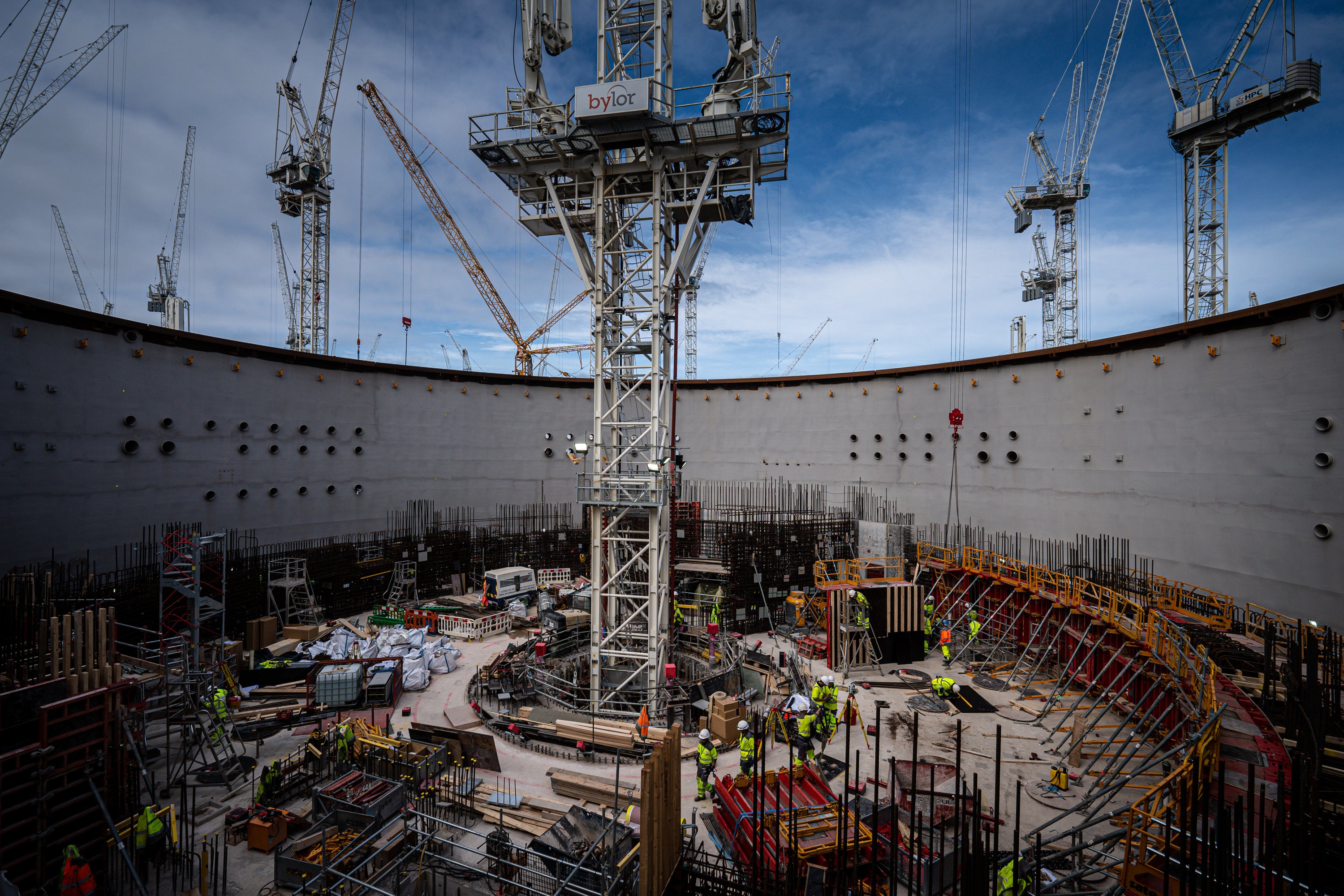Government must commit to nuclear or turn away from it, expert says
A piecemeal approach could end up discouraging investment in other forms of power, Sir Dieter Helm warned.

Your support helps us to tell the story
From reproductive rights to climate change to Big Tech, The Independent is on the ground when the story is developing. Whether it's investigating the financials of Elon Musk's pro-Trump PAC or producing our latest documentary, 'The A Word', which shines a light on the American women fighting for reproductive rights, we know how important it is to parse out the facts from the messaging.
At such a critical moment in US history, we need reporters on the ground. Your donation allows us to keep sending journalists to speak to both sides of the story.
The Independent is trusted by Americans across the entire political spectrum. And unlike many other quality news outlets, we choose not to lock Americans out of our reporting and analysis with paywalls. We believe quality journalism should be available to everyone, paid for by those who can afford it.
Your support makes all the difference.The Government should either properly commit to nuclear power or not pursue it at all, one of the country’s leading energy experts has said.
Sir Dieter Helm warned a stop and start approach could harm investment in other areas, such as wind.
“It’s no accident that most nuclear power is built by governments, on government money with government-owned companies. I’m not advocating you have to have government-owned companies. I’m simply making that point,” said Sir Dieter, who is professor of energy policy at the University of Oxford.
At an event organised by Policy Exchange, Sir Dieter pointed to the example of the French government, which will deliver six new nuclear sites through EDF, which is state-owned.
Britain stands in contrast to this.
“When you make nuclear decisions, what you don’t want to do is decide: ‘Well let’s try three and see which one works’ – that’s British policy,” he told listeners.
“You then wait 10 years to find out if one of them works, and then you decide what you’re going to do subsequently.
“The Prime Minister’s language of being ‘gung ho’ about nuclear is really in one sense correct: You either do it and do it properly and have a programme, or you don’t do it.”
He said that one of the worst options is to “try one and see if it works because we want to hold back the public expenditure”.
But even worse is “deciding that we’ll think about deciding” because it will discourage investment in other potential options like offshore wind.
The Government is planning to set out an energy security strategy shortly.
It has already been delayed several times and there are reports of disagreements within the cabinet.
These include opposing views between the Treasury and 10 Downing Street on how much nuclear power should feature in the plan.
Chancellor Rishi Sunak is reportedly worried that building enough new nuclear power could prove very costly.